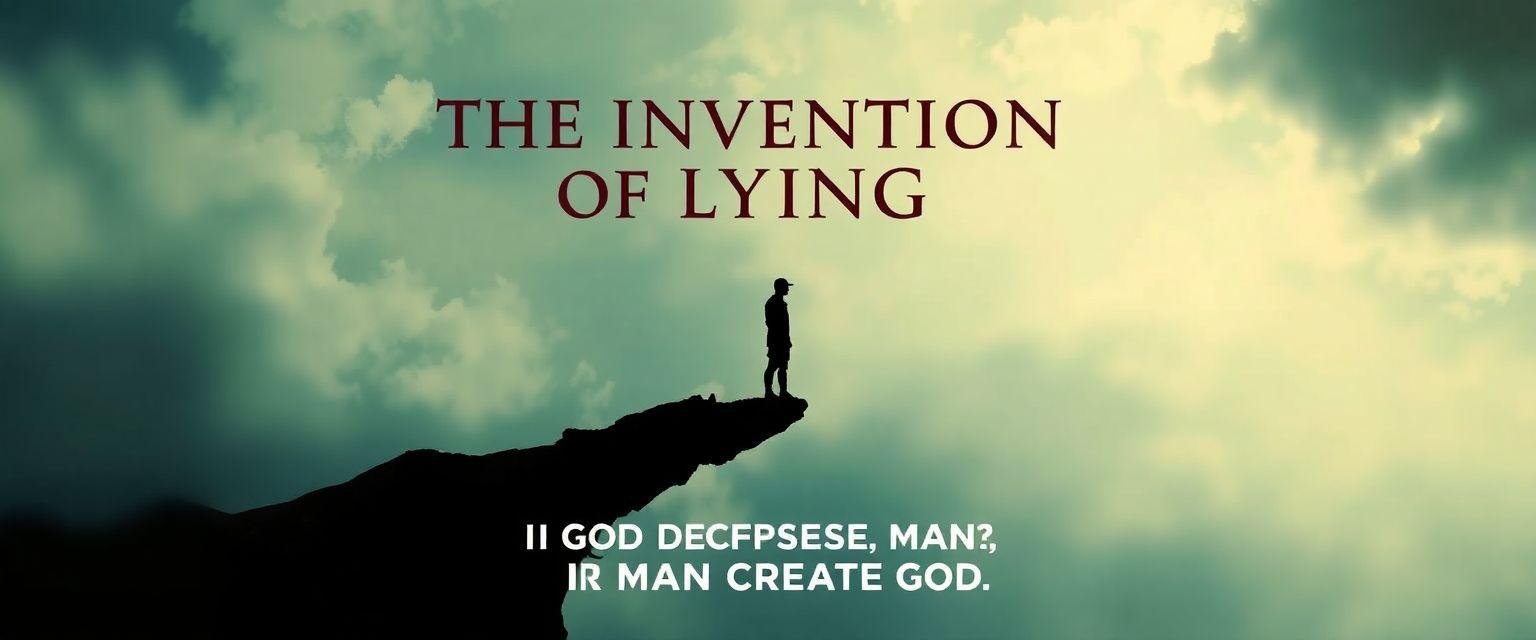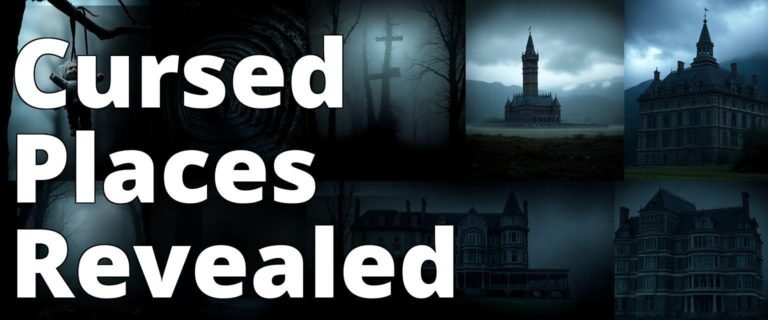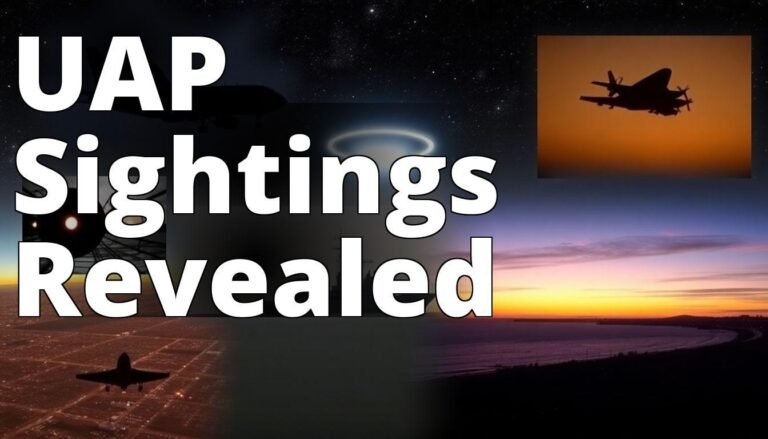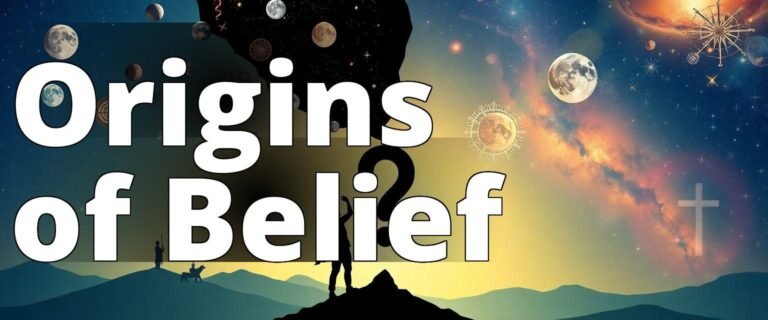Did God Create Man, or Man Create God?
In a world rife with diverse beliefs and spiritual narratives, one might wonder: Did God create man, or did man create God? This existential pondering has fueled philosophical debates, theological discourse, and, notably, the cinematic industry. Films have a unique power to incite reflection and challenge our perceptions of faith and spirituality. Through evocative storytelling and visual splendor, they compel us to question the origins of human spirituality. In a society where religion often serves as both a source of comfort and a catalyst for conflict, these films prompt us to reevaluate our beliefs and the narratives we’ve been told.
Films like “The God Who Wasn’t There” and “The Last Temptation of Christ” challenge traditional narratives and invite viewers to explore the complex relationship between faith and doubt. The very nature of belief is interrogated, as these films delve into the historical, psychological, and cultural underpinnings of religion. As we journey through these cinematic explorations, we must ask ourselves: are our beliefs a reflection of divine truth, or are they constructs of human imagination? As we explore these films, let us reflect on these questions and consider the implications they have on our understanding of spirituality and human history.
Origins of Human Spirituality
Explore the complex relationship between humanity and the concept of God through various cultural lenses.
– Discover how films like The God Who Wasnt There and Religulous challenge traditional beliefs about divine creation and human spirituality.
– Learn about the perspectives presented in The Last Temptation of Christ and The Passion of the Christ, illustrating the human struggle with faith and morality.
– Examine how popular narratives such as Avatar and The Twilight Saga: New Moon reflect and shape our understanding of spirituality and existence.
The God Who Wasnt There

Brian Flemming’s documentary, “The God Who Wasn’t There,” is a provocative exploration of the origins of Christianity. It questions the historical existence of Jesus Christ and the foundations upon which the Christian faith is built. By examining the parallels between Christian narratives and earlier mythologies, the film suggests that the story of Jesus might be a mythological construct.
This film is not for the faint-hearted believer; it boldly challenges the bedrock of Christian faith. Through interviews with scholars and historians, Flemming raises questions about the authenticity and historical accuracy of biblical texts. This documentary is a wake-up call for those who take religious narratives at face value, urging viewers to delve deeper into the history and origins of their beliefs.
Insider Tip: According to biblical scholar Bart D. Ehrman, discrepancies in ancient manuscripts indicate that the story of Jesus has been altered over time, highlighting the complex evolution of religious texts (source).
The Last Temptation of Christ

Martin Scorsese’s “The Last Temptation of Christ” is a cinematic masterpiece that delves into the human side of Jesus. The film presents an alternative narrative where Jesus grapples with doubt, temptation, and his role as the Messiah. By humanizing a divine figure, Scorsese invites viewers to reconsider their understanding of Jesus and his struggles.
This film is a fascinating portrayal of the conflict between the spiritual and the human. It challenges the audience to reflect on the idea that even divine figures are not immune to doubt and temptation. Scorsese’s adaptation of Nikos Kazantzakis’s novel is a profound exploration of faith, offering a narrative that is both controversial and deeply moving.
Insider Tip: Theologians like Elaine Pagels argue that exploring the humanity of Jesus allows believers to connect more deeply with his teachings, suggesting that doubt is an integral part of faith (source).
The Da Vinci Code

Based on Dan Brown’s best-selling novel, “The Da Vinci Code” delves into the mysteries of religious symbolism and the hidden truths of Christianity. The film follows symbologist Robert Langdon as he uncovers a conspiracy that questions the very foundation of the Christian faith.
“The Da Vinci Code” challenges viewers to question the historical accuracy of religious doctrine and the power structures that have shaped it. By weaving together art, history, and religion, the film invites audiences to explore the possibility that much of what we accept as religious truth may be rooted in human fabrication.
Insider Tip: Historian Karen Armstrong notes that religious narratives often evolve over time, shaped by cultural and political influences, which can obscure their original meanings (source).
The Passion of the Christ

Mel Gibson’s “The Passion of the Christ” is a visceral depiction of the final hours of Jesus Christ. While the film has been praised for its historical authenticity, it has also sparked controversy for its graphic violence and its portrayal of Jewish characters.
This film invites viewers to reflect on the suffering and sacrifice of Jesus, prompting questions about the nature of faith, salvation, and the human condition. By immersing audiences in the emotional and physical torment of Christ, the film challenges us to consider the depth of our own beliefs and the sacrifices they entail.
Insider Tip: Scholar John Dominic Crossan notes that the portrayal of Jesus’ crucifixion in art and film reflects evolving interpretations of sacrifice and redemption throughout history (source).
Religulous

Comedian Bill Maher’s documentary “Religulous” is a satirical examination of religion and its impact on society. Through interviews with believers and religious leaders, Maher questions the logic and rationale behind various faiths.
Maher’s irreverent approach challenges viewers to reconsider the role of religion in their lives and the influence it wields in contemporary society. By highlighting the contradictions and inconsistencies within religious doctrines, “Religulous” encourages audiences to adopt a more critical perspective on faith.
Insider Tip: Philosopher Daniel Dennett argues that skepticism and critical thinking are essential tools for navigating the complex landscape of religious belief (source).
The Invention of Lying

In a world where lying does not exist, “The Invention of Lying” explores the implications of truth-telling and deceit in shaping human societies. The film’s protagonist, played by Ricky Gervais, discovers the power of lying and, in doing so, inadvertently invents religion as a means of providing comfort and hope.
This comedic yet thought-provoking film raises questions about the origins and purpose of religious belief. By presenting religion as a construct born of human creativity and necessity, the film challenges audiences to consider whether faith is a reflection of divine truth or a product of human invention.
Insider Tip: Sociologist Peter Berger suggests that religion can be seen as a social construct that provides meaning and order in a chaotic world (source).
The Book of Eli

Set in a post-apocalyptic world, “The Book of Eli” follows a lone wanderer, played by Denzel Washington, who possesses a sacred book believed to hold the key to humanity’s salvation. The film explores themes of faith, power, and redemption, as Eli navigates a world where religion is both a source of hope and a tool for control.
“The Book of Eli” invites viewers to reflect on the power of religious texts and the influence they wield over individuals and societies. By examining the intersection of faith and survival, the film challenges audiences to consider the role of religion in shaping human history and the moral dilemmas it presents.
Insider Tip: Historian Yuval Noah Harari argues that religious texts can serve as powerful tools for social cohesion and control, shaping the course of human history (source).
The Twilight Saga: New Moon

While “The Twilight Saga: New Moon” may not appear to be a film about faith at first glance, it explores themes of love, sacrifice, and the search for meaning in an uncertain world. As Bella Swan navigates her relationships with vampire Edward Cullen and werewolf Jacob Black, she grapples with questions of immortality and the nature of the soul.
This film invites viewers to reflect on the spiritual dimensions of human relationships and the longing for eternal love. By exploring the tension between mortality and immortality, “New Moon” challenges audiences to consider the role of faith in shaping our understanding of life and death.
Insider Tip: Psychologist Carl Jung suggests that myths and stories about immortality reflect deep-seated human desires for transcendence and meaning (source).
Avatar

James Cameron’s “Avatar” is a visually stunning exploration of spirituality and interconnectedness with nature. Set on the lush moon Pandora, the film follows human colonists as they clash with the indigenous Na’vi people, who possess a deep spiritual connection to their environment.
“Avatar” invites viewers to reflect on the relationship between spirituality and the natural world, challenging the dominant narratives of exploitation and control. By presenting a vision of harmony and balance, the film encourages audiences to reconsider their own relationship with the environment and the spiritual dimensions of ecological stewardship.
Insider Tip: Environmental philosopher Joanna Macy argues that a spiritual connection with nature is essential for fostering a sustainable and harmonious future (source).
The Lovely Bones

Based on Alice Sebold’s novel, “The Lovely Bones” is a poignant exploration of grief, loss, and the afterlife. The film follows a young girl, Susie Salmon, as she navigates the in-between world after her untimely death, watching over her family as they struggle to cope with her loss.
This film invites viewers to reflect on the nature of the afterlife and the enduring connections between the living and the dead. By exploring themes of forgiveness and healing, “The Lovely Bones” challenges audiences to consider the spiritual dimensions of life and death.
Insider Tip: Thanatologist Elisabeth Kübler-Ross suggests that narratives about the afterlife can provide comfort and meaning for those grappling with loss (source).
The Imaginarium of Doctor Parnassus

Terry Gilliam’s “The Imaginarium of Doctor Parnassus” is a fantastical exploration of imagination, temptation, and redemption. The film follows a traveling showman who offers audience members a chance to explore their dreams and desires through a magical mirror.
This film invites viewers to reflect on the power of imagination and the role of temptation in shaping human destiny. By presenting a world where reality and fantasy intertwine, “Doctor Parnassus” challenges audiences to consider the spiritual dimensions of creativity and the choices we make.
Insider Tip: Creative theorist Mihaly Csikszentmihalyi argues that imagination is a vital component of human spirituality, allowing us to explore new possibilities and transcend limitations (source).
Creation

“Creation” is a biographical drama that explores the life of Charles Darwin as he grapples with the implications of his groundbreaking theory of evolution. The film delves into the personal and professional struggles faced by Darwin as he reconciles his scientific discoveries with his religious beliefs.
“Creation” invites viewers to reflect on the relationship between science and faith, challenging the notion that the two are inherently incompatible. By examining the historical context of Darwin’s work, the film encourages audiences to consider the ways in which scientific inquiry can enrich our understanding of spirituality and the natural world.
Insider Tip: Biologist Richard Dawkins suggests that science and spirituality can coexist, with each offering unique insights into the mysteries of existence (source).
Conclusion
As we journey through these films, we are invited to question the origins of human spirituality and the narratives that shape our beliefs. Each film offers a unique perspective on the complex interplay between faith, doubt, and the human experience. From historical critiques to imaginative explorations, these films challenge us to reconsider the boundaries between the divine and the human, the factual and the fictional.
Are our beliefs a reflection of divine truth, or are they constructs of human imagination? As we reflect on these questions, let us embrace the complexity and mystery of belief, recognizing that faith is a deeply personal and evolving journey. Whether through the lens of history, science, or imagination, these films remind us that our search for meaning and understanding is as diverse and dynamic as the narratives we create.






